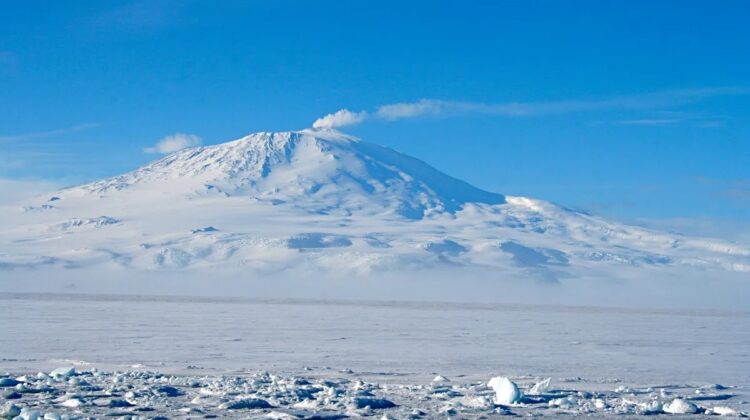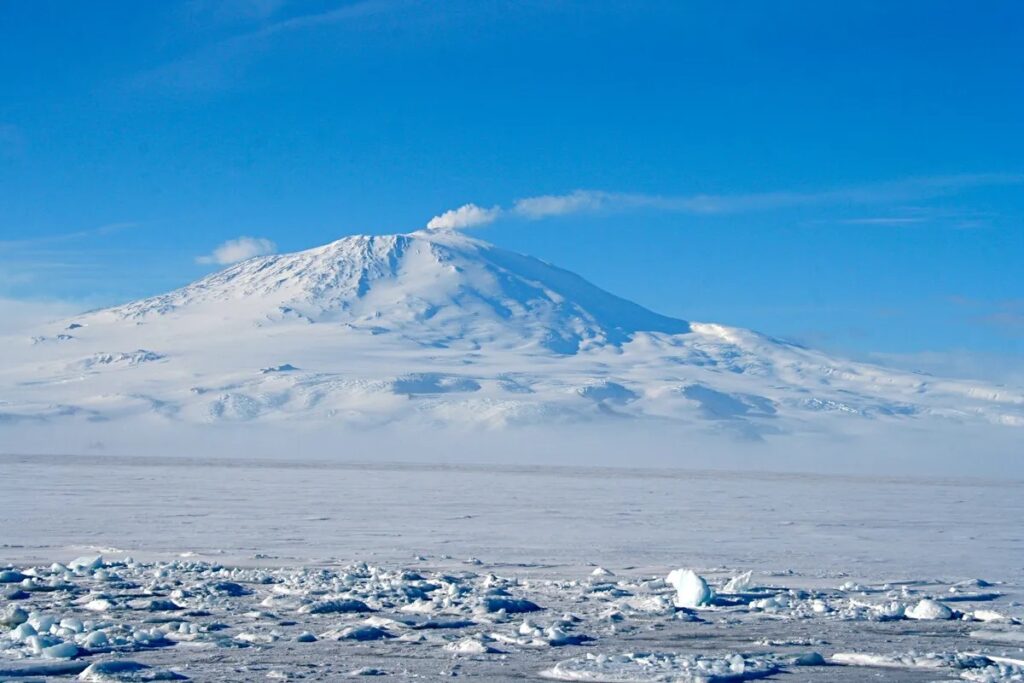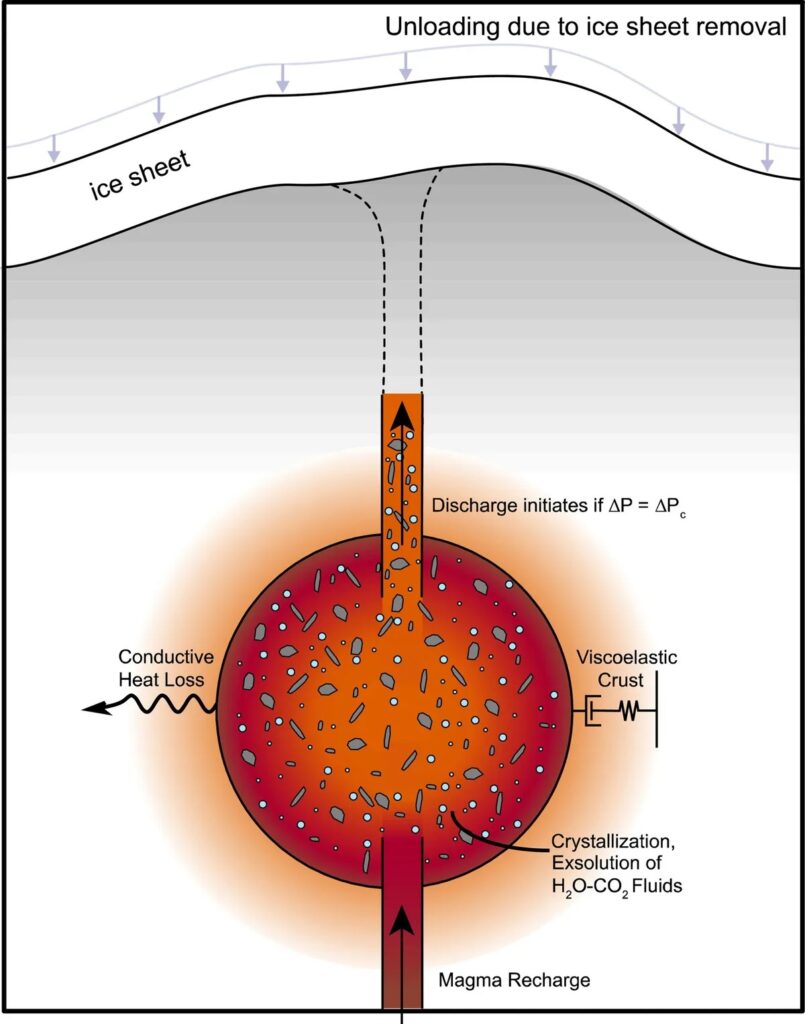
A chilling new study suggests that the melting of Antarctic ice sheets could trigger a chain reaction of volcanic eruptions, potentially leading to catastrophic consequences for the planet.
Humanity’s impact on the environment is undeniable, and the accelerating pace of climate change is a stark reminder of the delicate balance of our planet. While we grapple with rising sea levels and extreme weather events, a new threat has emerged from beneath the icy surface of Antarctica: the awakening of dormant volcanoes.
For millennia, these volcanic giants have slumbered beneath the immense weight of the Antarctic ice sheets. However, as global temperatures rise and ice sheets begin to melt, the pressure on these volcanoes is gradually decreasing. This reduction in pressure can destabilize the magma chambers below, potentially triggering a series of explosive eruptions.

Image credit: ENVIROSENSE/Shutterstock.com
A Domino Effect of Destruction
The study, conducted by a team of researchers at Brown University, utilized sophisticated computer models to simulate the impact of ice sheet melting on volcanic activity. Their findings are alarming: as the ice thins, the rate of magma eruption increases significantly. This increased volcanic activity, in turn, releases vast amounts of heat, further accelerating ice melt and creating a vicious cycle of destruction.
The Consequences are Dire
The potential consequences of such a scenario are truly catastrophic:
- Increased Global Warming: Volcanic eruptions release massive amounts of greenhouse gases, including carbon dioxide and sulfur dioxide, further exacerbating global warming.
- Disruption of Global Weather Patterns: Volcanic eruptions can inject large amounts of ash and aerosols into the atmosphere, disrupting global weather patterns and potentially leading to severe climate disruptions.
- Mass Displacement and Human Suffering: The potential for widespread volcanic eruptions would pose a significant threat to human life and infrastructure, potentially leading to mass displacement and human suffering on a global scale.

This chilling study serves as a stark reminder of the interconnectedness of our planet’s systems and the urgent need to address the climate crisis. The continued melting of Antarctic ice sheets presents a grave threat to the stability of our planet and demands immediate action.
What can be done?
- Transition to Renewable Energy: The most critical step is to rapidly transition away from fossil fuels and embrace renewable energy sources such as solar, wind, and geothermal power.
- Invest in Climate Change Mitigation: Governments and corporations must invest heavily in research and development of climate change mitigation technologies, such as carbon capture and storage.
- International Cooperation: Global cooperation is essential to address the challenges of climate change. International agreements and collaborations are crucial to ensure a coordinated and effective response.
The future of our planet hangs in the balance. The time for inaction is over. We must act now to mitigate the effects of climate change and prevent the catastrophic consequences of a potential volcanic awakening in Antarctica.

Leave a Reply